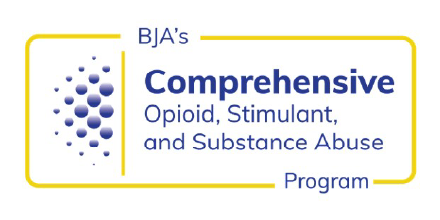Lake County Crisis Triage Stabilization Center is a 23-hour Crisis Triage Stabilization Center. As part of the center, a Living Room pairs guests with a peer counselor and offers crisis intervention in addition to basic needs such as food, clothes, showers, and transportation. The county has also expanded its Living Room Wellness Center to include a police drop-off option. The service provider, sheriff’s office, and state’s attorney’s office provide funding for the expanded services.
Transforming Systems > Crisis Response > Crisis Stabilization Centers
Overview
Crisis stabilization centers are crisis diversion facilities designed to provide mental health and substance use assessments, stabilization, treatment, and referrals. Crisis stabilization centers are often adjacent to, or embedded within, a hospital emergency department (ED) or a behavioral health facility. Common services include:
- Sobering centers to serve individuals under the influence of substances, primarily alcohol.
- Crisis care/observation as an alternative to inpatient psychiatric care. This includes crisis follow-up and transitional case management services that connect individuals with treatment and other services to reduce reemerging crises.
- Case coordination with individuals challenged by chronic homelessness, mental illness, and/or substance use.
- Access to a continuum of substance use or mental health services.
Other types of crisis diversion, such as receiving centers or drop-in centers, support walk-ins by community members and drop-offs by law enforcement and other first responders. These centralized hubs are designed to directly connect individuals to onsite, co-located services and/or coordinate referrals to community-based services. Services may include:
- Assessments
- Referral to community-based treatment providers
- Assistance with applying for Medicaid and other social service supports
- Screening and referral to sober housing
- Linkage and enrollment into employment readiness programs
Resources
- APR 2022
- National Association of Counties
- OCT 2020
- National League of Cities
Program Models
- PIMA COUNTY, AZ
The Crisis Receiving Center serves 12,000 adults and 2,400 youth a year. It offers various services, including a 24/7 mental health urgent care and a 23-hour observation unit for patients who would otherwise be “boarded” in the emergency room. Staff can also initiate medication-assisted treatment (MAT) for individuals experiencing opioid withdrawal. The CRC was built with Pima County bond funds, with Medicaid payments funding the patient care.
- DESCHUTES COUNTY, OR
The Deschutes County Stabilization Center provides short-term mental health treatment, assessment, and stabilization. Community members can walk in, or law enforcement and community providers can refer them to services 24 hours, seven days a week. The Center provides crisis intervention, peer support, case management, medication support, and a respite unit with recliners as a space to decompress and reengage in their recovery.
- ERIE COUNTY, NY
The Respite and Recovery Center is a peer-run crisis service model. By combining clinical and peer-based approaches for mental health crisis stabilization, the center offers the options to meet each individual’s current need while simultaneously working with individuals to engage in crisis planning to help avoid or better manage future crises.
- BEXAR COUNTY, TX
Individuals can be referred to the Restoration Center by law enforcement, courts, the Mobile Crisis Outreach Team, the sobering unit, the Crisis Care Center, individuals, families, and behavioral health professionals. Individuals can also simply walk in to receive services, as is the case for many of its homeless clients. As part of the diversion continuum, the Restoration Center allows officers to drop off an individual experiencing a mental health crisis and be back on the street within 15 minutes to take more calls for service.
Funding
Below is a list of funding opportunities that have been previously available from federal and private funding sources. Please note that although the funding deadlines may have passed, they can still be reviewed and considered for future planning purposes. You can check back often on the Announcements page for current funding opportunities as they are announced.
Collaborative Crisis Response and Intervention Training Program
Comprehensive Opioid, Stimulant, and Substance Abuse Site-based Program
Connect and Protect: Law Enforcement Behavioral Health Response Program
Cooperative Agreements for Innovative Community Crisis Response Partnerships
The Justice and Mental Health Collaboration Program
Technical Assistance
Many federal agencies and other partners offer assistance, in addition to grant funding, to jurisdictions, agencies and stakeholders to address training needs or the need for subject matter expertise to address local issues or challenges. Through these resources, you can access recent publications, tools, often request one-on-one remote or offsite assistance. Examples of assistance can include time with trainings, consulting time with subject matter experts, and/or opportunities for connecting with peers doing similar work.

Comprehensive Opioid, Stimulant and Substance Abuse Program Training and Technical Assistance
The COSSAP training and technical assistance (TTA) program offers a variety of learning opportunities and assistance to support BJA COSSAP grantees and other local, tribal, and state stakeholders to build and sustain multidisciplinary criminal justice responses to illicit substance use and misuse. Training and technical assistance is provided in a variety of formats, including virtual and in-person training events, workshop and meeting presentations, and online resources. TTA deliveries are provided to requestors free of charge. You can request assistance here.